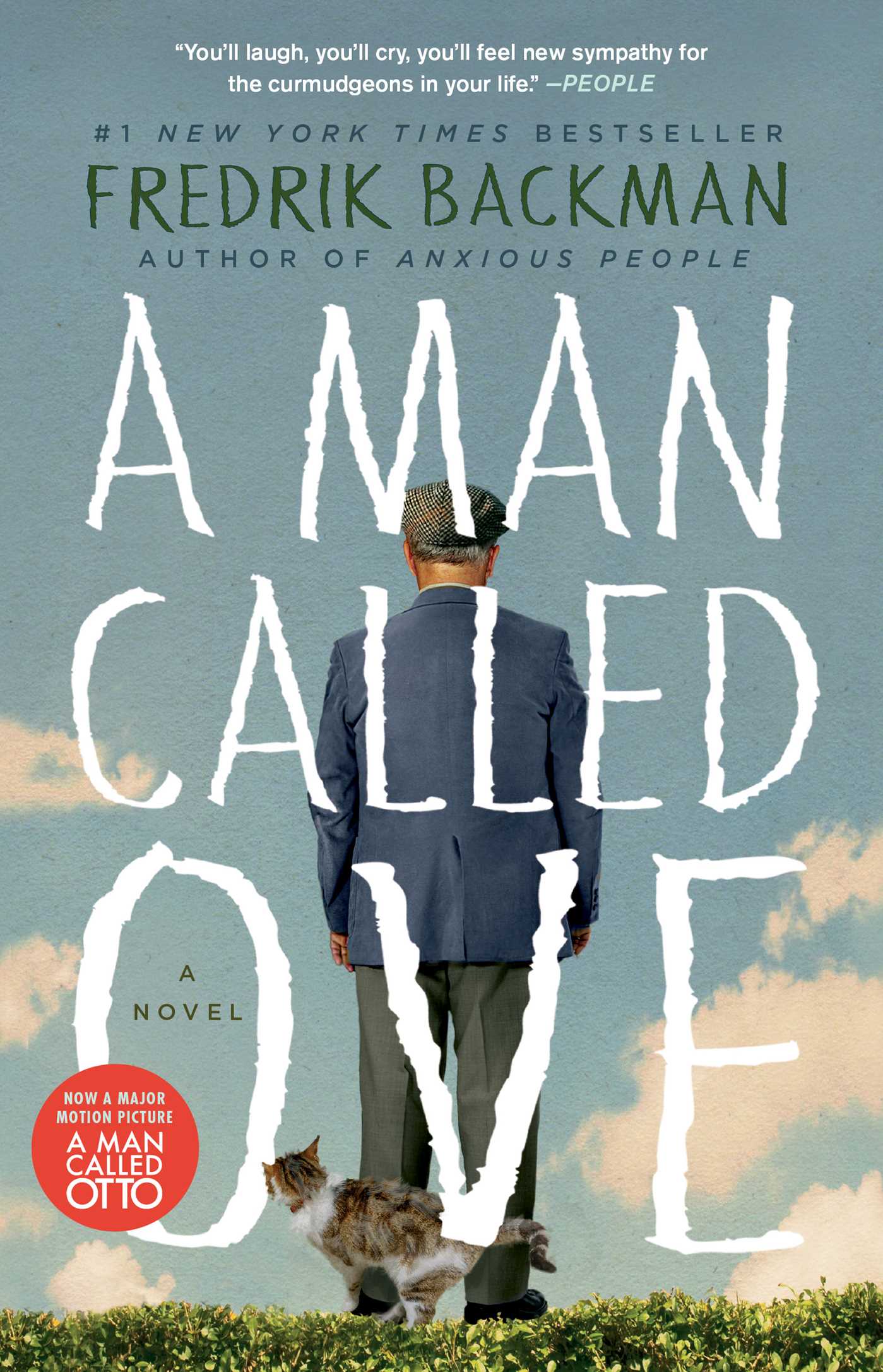 Frederik Backman writes A Man Called Ove as if similes were an endangered species. Backman's repetition of similes, adding "as if" to almost every description, is much more noticeable while listening to the book, and as the "as ifs" pile up the listening grows more tiring. Of course, this isn't the only problem, but the book has its fair share of entertaining moments, and even some of these similes are amusing. The book is a comedy, first and foremost, dangerously close to a romantic one, despite Backman's attempts to add some drama through back story. It's a comedy because the characters are largely one-dimensional. Despite some modest (and predictable) change at the end, Ove is a curmudgeon constantly surrounded by people who for some reason seem to really like him even though he is clearly annoyed by their presence. His constant attempts to take his own life are thwarted again and again by nosy neighbors or some other divine intervention. Ove is an amusing curmudgeon, one in the vein of Clint "Get off my Lawn" Eastwood, and Backman's perseverance in making this character so grumpy is the book's main redeeming factor.
Frederik Backman writes A Man Called Ove as if similes were an endangered species. Backman's repetition of similes, adding "as if" to almost every description, is much more noticeable while listening to the book, and as the "as ifs" pile up the listening grows more tiring. Of course, this isn't the only problem, but the book has its fair share of entertaining moments, and even some of these similes are amusing. The book is a comedy, first and foremost, dangerously close to a romantic one, despite Backman's attempts to add some drama through back story. It's a comedy because the characters are largely one-dimensional. Despite some modest (and predictable) change at the end, Ove is a curmudgeon constantly surrounded by people who for some reason seem to really like him even though he is clearly annoyed by their presence. His constant attempts to take his own life are thwarted again and again by nosy neighbors or some other divine intervention. Ove is an amusing curmudgeon, one in the vein of Clint "Get off my Lawn" Eastwood, and Backman's perseverance in making this character so grumpy is the book's main redeeming factor.You know you're in for a treat when the book opens with a cranky old man asking the sales clerk at a computer store for an "ePad," and then later accuses the man of trying to rip him off because he's too prideful to admit he doesn't know a thing about computers or tablets. Ove is a manly man, the kind who displays no visible emotion except any related to anger. Backman also seems to make it clear that he's the only competent person peopling this novel, with the exception of Ove's deceased wife, Sonia, and his new Iranian neighbor, Parvana. Everyone else is a doofus or some other form of incompetent, not just in the eyes of Ove, it seems, but also the author. Parvana's husband, Patrick, can't back an RV out of his driveway without smashing Ove's mailbox, or climb a ladder without breaking his leg. Ove's contempt for Patrick is met by Backman's, and even Parvana seems to barely tolerate the man.
While Ove makes for a believable curmudgeon, the rest of the character's are much less believable in their one-dimensionality, except Parvana. Sonia is angelic and forgiving, as any woman marrying a man like Ove must be. Patrick is obliviously kind, always wearing a smile, and seemingly unaware of the fact that people are always laughing at him. Jimmy is overweight, so he always has some kind of food in his mouth, and if he doesn't, he asks to be directed to the nearest snack, because that's all that overweight people think about. The men in white uniforms, representing the government, are heartless and condescending. Perhaps the least believable is the reporter woman who wants to interview Ove about him rescuing a man who had collapsed onto some train tracks. She seems oblivious to the fact that Ove does not want to interview him, and doesn't seem at all perturbed when he locks her in his garage. Many of these people don't feel real so much as pre-programmed automatons.
When I call this a borderline romantic comedy it's because the relationship between Ove and Parvana. It begins cold and then gradually grows warmer. It's nothing romantic that develops between the two, but an understanding that, in a way, they are soul mates. Ove grows to respect her for her own brand of stubbornness, and Parvana grows to love him, perhaps in a paternal way. Though this sounds much more like a drama, it is Ove's unflinching crankiness that makes this a comedy. Time and again, Ove is put in situations that he does not like, and there are very few that he does like, and for the most part it is amusing to see how Ove responds to these situations. The inevitability of the conclusion, and the seeming misanthropy, do take away from the emotional impact of the story, as do some of the over-the-top reactions characters have to certain events. But for those looking for an amusing cranky old man story, this hits the spot.
No comments:
Post a Comment